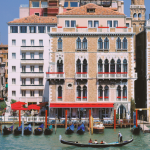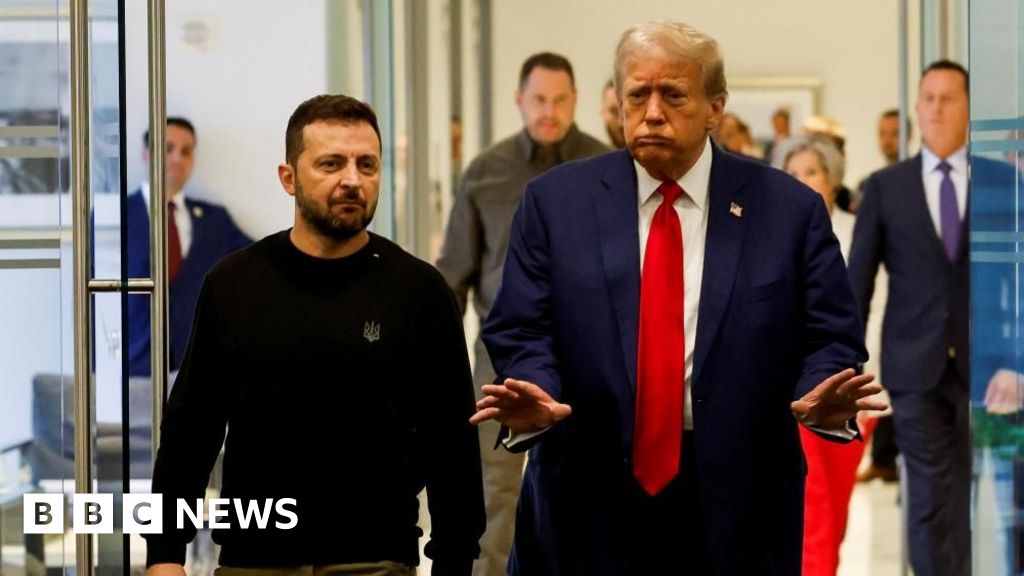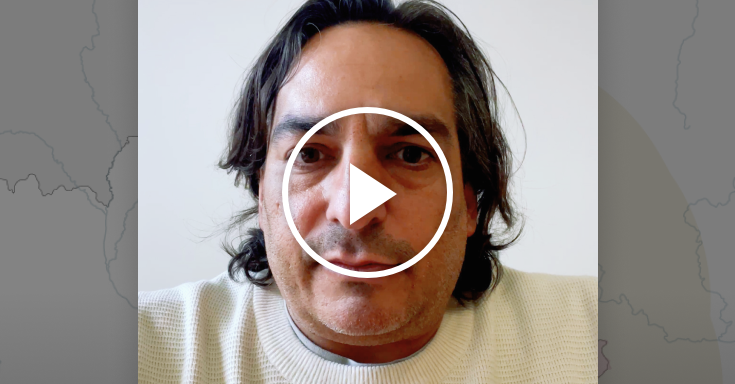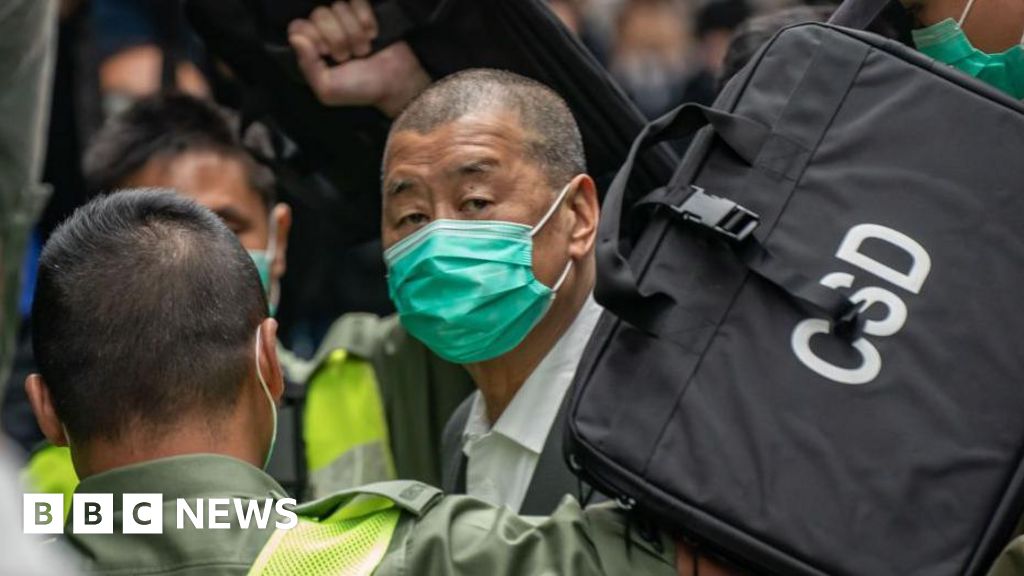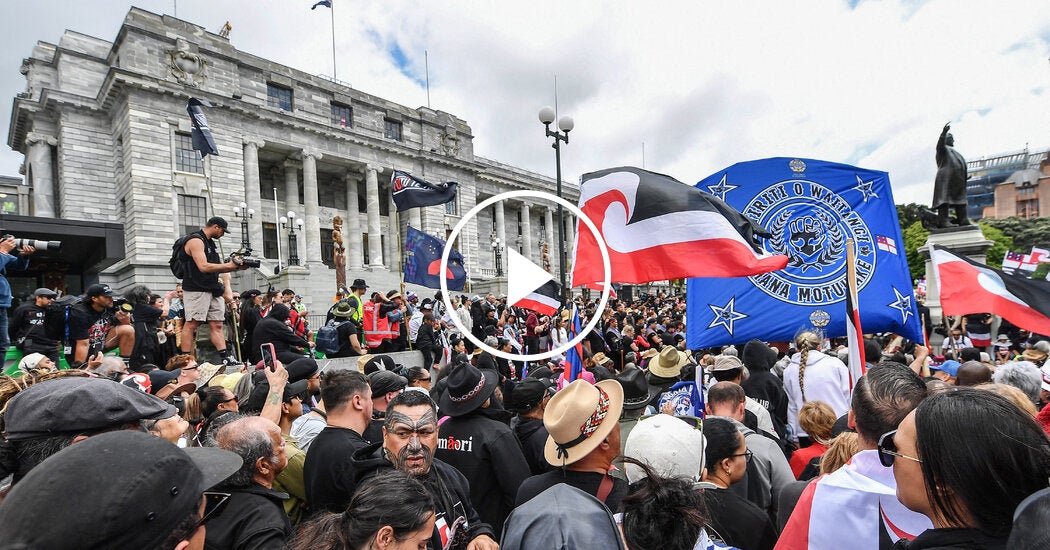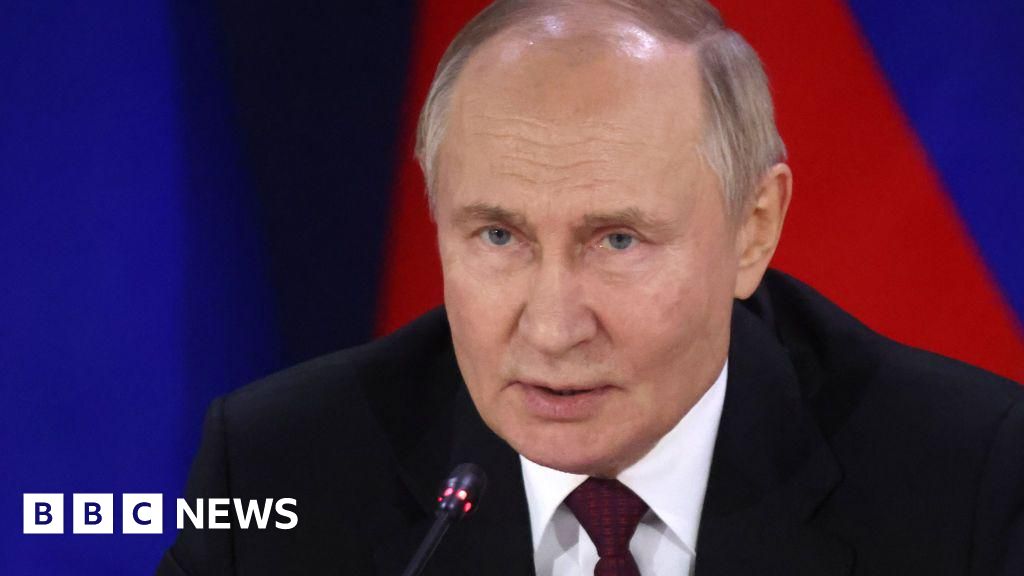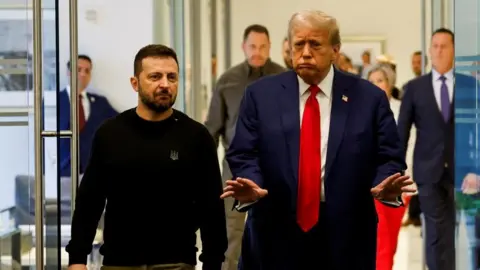 Reuters
ReutersDonald Trump met Ukraine’s Volodymyr Zelensky at his New York base in Trump Tower on Friday and said it was time Russia’s war in Ukraine was settled.
The Republican presidential nominee has repeatedly criticised the Ukrainian leader on the US campaign trail, and a meeting between the pair had seemed unlikely until hours before.
As the two men stood side by side, Zelensky said he thought they had a “common view that the war has to be stopped and Putin can’t win”, adding that he would discuss with Trump details of his “victory plan”.
Despite years of differences, Trump insisted he had a very good relationship with Zelensky: “I also have a very good relationship as you know with President Putin and I think if we win [the election] we’re going to get it resolved very quickly.”
“It has to end, [Zelensky] is going through hell, his country’s going through hell like few countries have ever,” he told reporters.
The pair have endured a tumultuous relationship. Trump was impeached in 2019 over accusations that he pressured Zelensky to dig up damaging information on the Biden family.
A rough transcript of the call revealed Trump had urged Zelensky to investigate Joe Biden, as well as Biden’s son Hunter.
Standing beside Zelensky on Friday, he praised the Ukrainian leader’s handling of the issue.
Since Russia launched its full-scale invasion of Ukraine in February 2022, Trump has frequently repeated Moscow’s talking points about the war. During September’s presidential debate, he sidestepped a question on whether he wanted Ukraine to emerge victorious in the conflict.
Ahead of Friday’s meeting, Trump repeated his long-standing claim that he would be able to “work out something” to settle the war if he won the presidential election, long before Joe Biden leaves office in January.
He has refused to elaborate when asked whether he believes Ukraine should cede territory to Russia as a means of ending the war.
Although Zelensky has been visiting the US since Sunday, their meeting was only confirmed on Thursday night, when Trump posted a screenshot of a text message from President Zelensky saying it was “important for us to have a personal contact and to understand each other 100%”.
There have been tensions all week between Zelensky and the Republican party ahead of November’s US presidential election.
Some Republicans were angered by Zelensky’s visit to an arms factory in Biden’s hometown of Scranton, Pennsylvania, with top Democrats, including state Governor Josh Shapiro, earlier this week.
Zelensky’s trip to the key swing state was labelled by leading Republicans as a partisan campaign event. In a public letter, House Speaker Mike Johnson said the visit was “designed to help Democrats” and claimed it amounted to “election interference”.
Trump has grown increasingly critical of continued US funding for Ukraine, and in recent days has sharpened his attacks against Zelensky, calling him the “greatest salesman on Earth”.
In contrast, Zelensky recently told the New Yorker magazine that he believes Trump “doesn’t really know how to stop the war”.
When asked about Zelensky’s comments on Thursday, Trump replied: “I do believe I disagree with him. He doesn’t know me.”
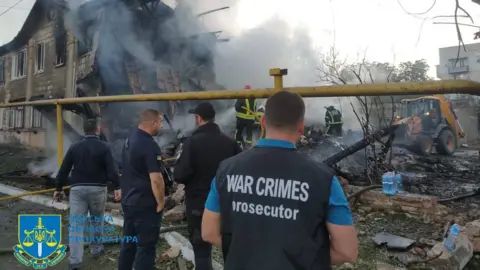 Odesa Regional Prosecutors
Odesa Regional ProsecutorsOn Thursday, Zelensky met US President Joe Biden and Vice-President Kamala Harris at the White House to discuss his “victory plan”, which he hopes will pressure Russia into agreeing a diplomatic end to the war.
Hours before, Biden had announced a further $7.9bn (£5.9bn) package of military assistance to Ukraine.
As Zelensky visited the US, drone attacks continued in Ukraine. On Thursday night, three people were killed and 14 others wounded in a Russian drone attack on Izmail, a port city on the River Danube.
Russia has targeted Izmail’s grain export facilities in the past. Prosecutors say two boys aged three and 13, and a girl aged 14, were among those wounded in the latest attack.
Romania’s defence ministry said it was possible that one of the Russian drones involved in the attack had crossed the border into Romania, a Nato member state, for a very short period.

North America correspondent Anthony Zurcher makes sense of the race for the White House in his weekly US Election Unspun newsletter.
Readers in the UK can sign up here. Those outside the UK can sign up here.
